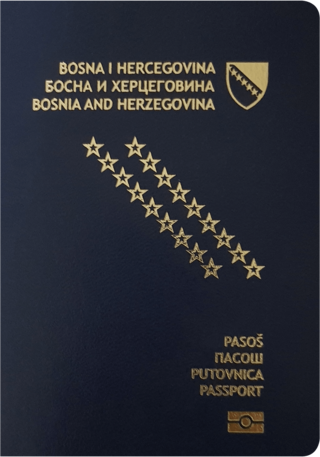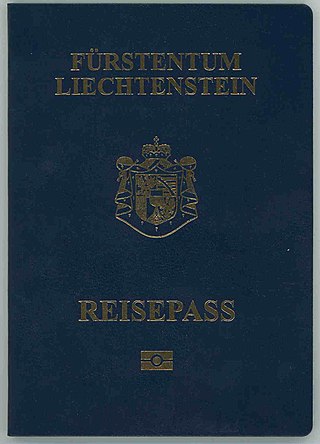
The visa policy of the Schengen Area is a component within the wider area of freedom, security and justice policy of the European Union. It applies to the Schengen Area and to other EU member states except Ireland. The visa policy allows nationals of certain countries to enter the Schengen Area via air, land or sea without a visa for up to 90 days within any 180-day period. Nationals of certain other countries are required to have a visa to enter and, in some cases, transit through the Schengen area.

Visa requirements for Bosnia and Herzegovina citizens are administrative entry restrictions by the authorities of other states placed on citizens of Bosnia and Herzegovina.

Visitors to Montenegro must obtain a visa from one of the Montenegrin diplomatic missions unless they are citizens of one of the visa-exempt countries. Visa policy is regulated by Regulation on Visa Regime Act. Where there are no diplomatic or consular representations of Montenegro, visa requiring foreigners may obtain them from diplomatic or consular representations of Serbia, Bulgaria and Croatia.

Visa requirements for Egyptian citizens are administrative entry restrictions imposed on citizens of Egypt by the authorities of other states.

Visa requirements for Indonesian citizens are administrative entry restrictions imposed on citizens of Indonesia by the authorities of other states.
Visitors to Serbia must obtain a visa from one of the Serbian diplomatic missions unless they are citizens of one of the visa-exempt countries.

Visitors to North Macedonia must obtain a visa from one of the North Macedonia diplomatic missions unless they are citizens of one of the visa-exempt countries.

The visa policy of Albania allows citizens of certain countries to enter Albania without a visa. Citizens of certain other countries must obtain a visa from one of the Albanian diplomatic missions. Alternatively, they may obtain an electronic visa.

The visa policy of Turkey deals with the requirements that a foreign national wishing to enter Turkey must meet to be permitted to travel to, enter and remain in the country.
Visitors to Colombia must obtain a visa from one of the Colombian diplomatic missions unless they come from one of the visa-exempt countries.

Visitors to Pakistan typically must obtain a visa from one of the Pakistani diplomatic missions. Pakistani missions abroad offer various categories of visas, with some travelers eligible for visa on arrival if traveling as part of a group tour, or for business.

Monaco does not have a visa policy of its own and the Schengen Visa policy applies. Although Monaco is not part of the European Union, or the Schengen Agreement, its territory is part of the Schengen Area by virtue of its customs Union with France as a result of the "Convention on Good Neighbourly Relations of 18 May 1963 on the entry, stay and establishment of foreigners in Monaco" between France and Monaco. The 1963 convention was adapted to allow Monaco to be administered within the Schengen Area as if it were part of France.

Visa requirements for Liechtenstein citizens are administrative entry restrictions by the authorities of other states placed on citizens of Liechtenstein. As of March 2023, Liechtenstein citizens had visa-free or visa on arrival access to 180 countries and territories, ranking the Liechtenstein passport 12th in terms of travel freedom overall, and the lowest of the EFTA member states, according to the Henley Passport Index.

The visa policy of Lebanon deals with the requirements which a foreign national wishing to enter the Republic of Lebanon must meet to be permitted to travel to, enter and remain in the country.

Visitors to East Timor must obtain a visa, unless they come from one of the visa exempt countries.

Visitors to Jamaica must obtain a visa from one of the Jamaican diplomatic missions or in certain cases from one of the United Kingdom diplomatic missions unless they are citizens of one of the visa-exempt countries or citizens who may obtain a visa on arrival.

Visitors to El Salvador must obtain a visa from one of the Salvadoran diplomatic missions, unless they come from one of the visa exempt countries. All visitors must hold a passport valid for 6 months.

Visitors to Nicaragua must obtain a visa from one of the Nicaraguan diplomatic missions, unless they come from one of the visa exempt countries or countries that can obtain a visa on arrival. All visitors must hold a passport valid for 6 months.

Visitors to Egypt must obtain a visa from one of the Egyptian diplomatic missions unless they come from one of the visa exempt countries or countries that are eligible for visa on arrival.

The British Overseas Territories maintain their own entry requirements different from the visa policy of the United Kingdom. As a general rule, British citizens do not have automatic right of abode in these territories.





















